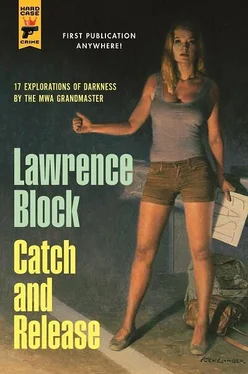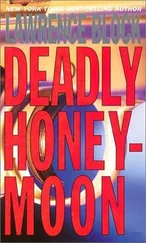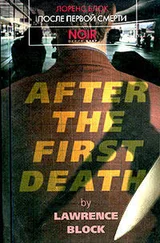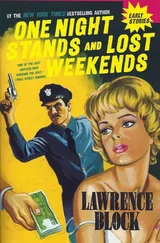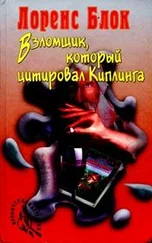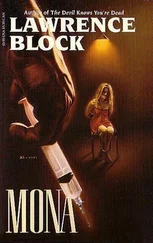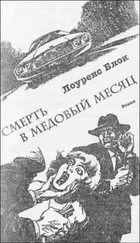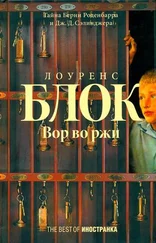And we were older, Mick and I. We got tired and went home to bed.
And now he’d summoned me to discuss the ending of a television series.
He said, “What do you think happens?”
“You’re not talking about TV.”
He shook his head. “Life. Or the end of it. Is that what it is? A blank screen?”
I talked about near death experiences, all of them remarkably similar, with the consciousness hovering in midair and being invited to go to the light, then making the decision to return to the body. “But there’s not a lot of eyewitness testimony,” I said, “from the ones who go to the light.”
He thought about it, nodded.
“You’re a Catholic,” I said. “Doesn’t the Church tell you what happens?”
“There’s things I take their word for,” he said, “and things I don’t. Kristin thinks you meet your loved ones on the other side. But of course she’d want to think that.”
Kristin Hollander had lost her parents in a brutal home invasion, and had met Mick in its aftermath, when I sent him to her house to keep her safe. They’d grown friendly since.
“She has this set that puts you in mind of a movie screen,” he said. “We watched the show together and sat around for hours talking about it.” He drank whiskey. “There are some I’d not mind seeing again. My brother Dennis, for one. But after a few words about old times, what would we talk about for the rest of eternity?”
I wondered where this was going. He’d called me out in the middle of the night, and I had a feeling he wanted to tell me something, and I was afraid to ask what it was.
And so we drifted into a shared silence, not uncommon during our late evenings together. I was searching for a way to break it, but it was Mick who spoke first.
“There’s a favor I have to ask you,” he said.
“I dreaded hearing it,” I told Elaine. “I just knew he was going to tell me he was dying.”
“But he’s not.”
“He wants me to stand up for him. He’s getting married. To Kristin.”
“I figured that’s why he wanted to meet you. So he could tell you. You didn’t see it coming?”
“I thought they were just friends.”
She gave me a look.
“He’s forty years older than she is,” I said, “and spent those years tearing up the West Side. No, I didn’t see it coming.”
“You never noticed the way she looks at him? Or the way he looks at her?”
“I knew they enjoyed each other’s company,” I said, “but—”
“Oy,” she said. “Some detective.”
One Last Night at Grogan’s
We had dinner at Paris Green, a few blocks south of our apartment on Ninth Avenue. I ordered the sweetbreads, and wondered not for the first time why they were called that, being neither sweet nor bread. Elaine pointed out that Google could clear that up for us in no more than thirty seconds. More like two hours, I told her, by the time I’d run out of other fascinating things to click on.
The fish of the day was Alaskan halibut, and that’s what she chose. After many years as a vegetarian, she’d been persuaded by a nutritionist to regard fish as a vegetable. At first she worried it would be the culinary equivalent of a gateway drug, and in no time at all she’d be cracking beef bones and sucking out the marrow. So far she hadn’t progressed past fish a couple of times a week.
It was around eight when Gary showed us to our table, and maybe an hour later when we said no to dessert and yes to espresso. It’s rare for her to have coffee, especially late in the day, and my surprise must have shown in my face. “It could be a long night,” she said. “I figure I’d better be awake for it.”
“I can see how much you’re looking forward to it.”
“About as much as you are. It’s got to be like a wake without a corpse. Except last night would have been the wake, so what’s this? The burial?”
“I guess.”
“I always thought the Irish wake made a lot of sense. Pour down the booze until you can think of something good to say about the deceased. My people cover the mirrors, sit around on hard wooden benches, and stuff themselves with food. I wonder what it was like last night.”
“I’m sure he’ll tell us.”
We finished our coffee, and I signaled our waitress for the check. Gary brought it himself. How many years had we known him? How many years had we been coming here a couple of times a month?
It seemed to me that neither he nor the restaurant had changed. He always looked as though something reminded him of a joke, and the light in his blue eyes hadn’t dimmed any. But his beard, still hanging from his long jaw like an oriole’s nest, showed some gray now, and his age showed at the corners of his eyes. And it was a night to notice such things.
“I didn’t see you last night,” he said. “Of course I didn’t go over until we closed up shop here. You’d probably headed for home by then.”
“That would be—”
“The big fella’s place. You’re friends, aren’t you? Or have I got it wrong, as I so often do?”
“We’re close friends,” I said. “I didn’t realize you knew him that well.”
“I don’t, not really. But he’s part of the neighborhood, isn’t he? I doubt I’ve been in Grogan’s a dozen times in as many years, but I made sure I got there last night.”
“Paying your respects,” Elaine suggested.
“And watching my neighbors take advantage of the open bar. A sight guaranteed to raise or lower your opinion of the human race, depending where it was to begin with. And, you know, being present for the end of an era, and isn’t that the most overused phrase at our command? Every time a sitcom’s canceled, someone proclaims it the end of an era.”
“And once in a while it is,” she said.
“You’re thinking of Seinfeld .”
“Well, yeah.”
“An exception,” he said, “that proves the rule. As is the shuttering of Grogan’s Open House. A fixture in the local landscape, and soon enough the building will be gone and no one will remember what used to be there. Our town, forever reinventing itself. I heard they made the owner such a good offer that he was willing to risk Mr. B’s wrath for selling the building out from under him. And I also heard that Mick owned the building, no matter whose name might be on the deed.”
“You hear lots of things,” I said.
“You do,” he agreed. “I’m pleased to report that the era of hearing things is still going strong.”
For longer than I’ve known him, my friend Mick Ballou has been the proprietor of Grogan’s Open House, a Hell’s Kitchen saloon at the southeast corner of Tenth Avenue and Fiftieth Street. The place began as a hangout for the neighborhood hoodlums, or at least that segment thereof who pledged some sort of undefined allegiance to the man himself. In recent years it has attained a certain degree of raffish respectability, even as the neighborhood has gentrified around it. The new people who’ve moved into refurbished tenements or new high-rise condos like to stop in for a draft Guinness and point out what may or may not be bullet holes in the walls.
Mick has always tended to hire Irish lads as bartenders, most of them fresh transplants from Belfast or Derry or Strabane, but a Northern Ireland accent never kept a new man from learning how to make a Wild Mustang or a Novarian Sunset. The new crowd liked bellying up to the bar next to old neighborhood regulars, and a man who’d worked half a century as a subway motorman would be transformed in the telling into a desperate character with blood on his hands. The old fellows didn’t mind; they were just trying to make a glass of beer last until the next pension check arrived.
“Don’t come on the Friday,” Mick had told me. “’Twill be our last night, with the whole of the West Side sure to come out for it. An open bar until the taps run dry, and there’ll even be a bit of food.”
Читать дальше
